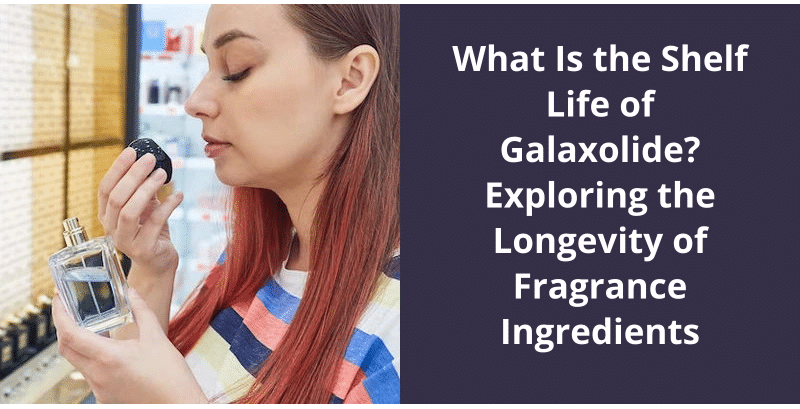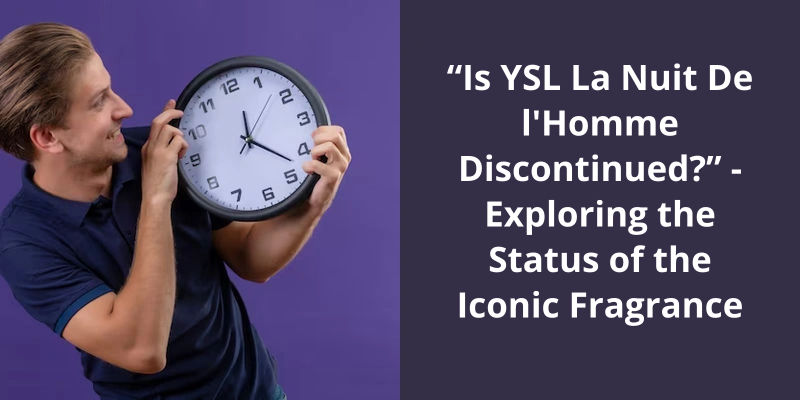Rain does influence how we perceive smells, but it doesn’t exactly make smells stick. The moisture from the rain can enhance certain smells in the environment because it moistens the particles to which odors are attached, helping to release them into the air. This can make scents seem stronger. Additionally, rainwater can create a distinct scent of its own known as “petrichor,” produced when rain falls on dry soil or rocks. However, the concept that rain makes smells stick isn’t accurate as the enhanced smells disperse once the rain has stopped and everything dries out.

Can Some People Smell When Rain Is Coming?
When rain is about to come, the atmospheric pressure drops, and this change in pressure can release the volatile compounds from sources such as plants and soil. This release of volatile compounds can then be detected by the human nose. In addition to this, the moisture in the air can carry odors more easily, and this can intensify the smells associated with rain.
The human nose is incredibly sensitive, and some people are more attuned to these changes in the environment than others. This could be due to a range of factors, including genetics, individual sensitivity, or exposure to certain smells. Some people might be able to detect the smell of impending rain more easily due to these factors, while others might not notice much difference.
Beyond the smell of geosmin, there are other odors associated with rain, such as the smell of ozone. When lightning strikes, it can create ozone in the air, which has a sharp smell that some people associate with rain. There’s also the smell of petrichor, which is the scent associated with the earthy odor of rain on dry soil. This smell comes from the release of plant oils and compounds that are trapped in the soil.
Whether you notice it or not, the smell of rain is a fascinating example of how the environment around us can affect our senses in unexpected ways. As such, it adds another layer of richness to our experience of the natural world, and a reminder of the incredible complexity of the everyday phenomena that surround us.
So, it turns out that there’s more to the smell of rain than just wet earth and petrichor. Rain brings out a unique fragrance that’s caused by the release of volatile fatty acids from plants. These acids mix with other components in the air, including ozone, to produce the iconic scent of rain. But what’s it about rainy weather that triggers the release of these odorous compounds?
Why Does Rain Enhance Smell?
Ozone forms in the atmosphere when ultraviolet light interacts with oxygen molecules. During a rain shower, lightning may produce a burst of electrical energy that splits oxygen molecules into individual atoms. These atoms can then recombine with oxygen molecules to form ozone, which has a distinct sharp smell often associated with thunderstorms. Additionally, rain can wash away bacteria and other compounds that cause unpleasant odors, leaving the air smelling fresher and cleaner.
Some scientists believe that humans may have evolved to appreciate the smell of rain due to it’s association with life-giving water. The release of the earthy oils from plants during a rainfall can signal the start of a new growing season, promising a bountiful harvest. This evolutionary preference for the scent of rain may explain why people find it so comforting and nostalgic.
In fact, the smell of rain is so powerful that it can trigger strong emotions and memories in people. This phenomenon is known as petrichor, a term coined by two Australian researchers in the 1960s. The word is derived from the Greek words for “stone” and “elixir,” referencing the pleasant smell that’s released when rain falls on dry earth or rocks.
Petrichor isn’t just limited to plants and rocks, however. Many man-made materials, such as asphalt and concrete, can also release distinct aromas when wetted by rain. This is due to the presence of various chemicals and oils in these materials that are released into the air when wet.
The scent of rain is a complex and fascinating phenomenon that’s a result of numerous natural and man-made factors.
How Has Technology and Innovation Affected Our Understanding of the Science and Psychology of Scent, Including the Study of Rain Smell?
- Technology and innovation have helped us understand the science behind scent by providing tools to measure and analyze the chemical composition of different smells.
- Thanks to advances in technology, we’ve a better understanding of the way our brains process and interpret scent, including how scent is linked to our emotions and memories.
- Recent research has shown that our sense of smell can be enhanced through the use of technology, such as virtual reality and scent-emitting devices.
- When it comes to rain smell, technology has allowed us to study the different chemical compounds present in raindrops and how they contribute to the scent we associate with rain.
- As our understanding of scent continues to grow through the use of technology and innovation, we may be able to unlock new insights into the psychology of scent and it’s impact on our well-being.
Source: Why Does Rain Smell Good? – Petrichor – Live Science
As the rain falls, it stirs up a variety of scents that are otherwise trapped on surfaces. When raindrops disturb the odoriferous molecules on dry surfaces, it causes them to become airborne, resulting in a captivating aroma. This leads to some interesting theories about whether smells can travel in the rain.
Do Smells Travel in Rain?
This means that smells do indeed travel in rain, and can even be intensified by the precipitation. The scent molecules are lifted off surfaces and suspended in the air, where they can be carried over long distances. In fact, rain can be a powerful tool for dispersing strong odors, as the water droplets help to spread the molecules over a wider area.
For example, a fresh-cut lawn is likely to release more scent molecules during a heavy rain than a paved road or concrete sidewalk. Additionally, some scents are more resilient than others, and may still be detectable even after heavy precipitation.
Despite the fact that rain can help to spread odors, it’s important to note that not all smells are created equal. Some, like the scent of fresh flowers or baking bread, are pleasant and enjoyable. Others, like the smell of sewage or garbage, can be quite off-putting. Furthermore, some smells can actually be harmful if inhaled in large amounts, such as those from chemical pollutants or toxic fumes.
Whether you find the scents of rainfall to be enjoyable or irritating is a matter of personal preference, but it’s important to be aware of the potential health risks associated with certain odors. So next time youre caught in a rainstorm, take a deep breath and see if you can detect any new scents in the air!
Now that we know rain alone can’t completely cover human scent, let’s explore how other environmental factors can affect scent tracking and what measures humans have taken to conceal their scent throughout history.
Does Rain Cover Human Scent?
However, rain can help to temporarily mask human scent. This is due to the fact that raindrops can wash away particles that carry scent, and also due to the fact that the humidity that often accompanies rain can cause scent molecules to become less volatile and less easily detectable by scent-tracking animals.
There are a variety of factors that can influence how easily scent is detected, including weather conditions, wind direction, and the type of terrain being tracked on. In addition, scent-tracking animals such as dogs are often trained to follow a specific individuals scent, making it difficult for them to be confused or deterred by environmental factors like rain.
In situations where concealment is necessary, there are a variety of other tactics that can be employed, such as wearing scent-masking clothing or using products specifically designed to reduce or eliminate human scent. Additionally, it’s important to be mindful of ones own actions and activities, as certain behaviors can increase the likelihood of leaving behind a detectable scent trail.
However, by combining multiple tactics and being mindful of ones actions, it’s possible to reduce the likelihood of being easily detected by scent-tracking animals or individuals.
The Science Behind How Scent Works and How It Can Be Detected by Animals
Scent is the chemical molecules released by a substance that can be detected by animals through their olfactory senses. The science behind this process involves the detection of these molecules by sensory receptors in the nose, which then send signals to the brain to identify and interpret the scent. Different animals have different olfactory receptors and sensitivities, allowing them to detect specific scents in their environment. The importance of scent detection varies depending on the species, from finding mates or prey to avoiding predators or identifying familiar individuals.
As hunters, there are many techniques and products that can be used to mask our scent and increase our chance of success. One common question amongst hunters is whether or not rain has an impact on our human scent and if deer can still detect our presence. While some may think that rain can wash away our scent, others argue that it actually helps to mask it. In this article, we will take a closer look at this debate and explore how hunters can use the elements to their advantage during their next hunt.
Does Rain Wash Away Human Scent From Deer?
However, rain isn’t a guarantee that your scent will disappear completely. While water can dilute the concentration of human odor, the particles that make up our scent can still cling to the surrounding vegetation and terrain. This means that even if you’re caught in a downpour, some residual scent from your body may still linger in the area, especially if you’re wearing clothing or gear that’s absorbed your odor.
This is where Scent Killer comes into play. Scent Killer is a specialized spray used by hunters to neutralize their body odor. By using Scent Killer, hunters can eliminate any remaining scent on their clothing and gear, making it nearly impossible for deer to detect their presence. This is particularly important for bow hunters, who need to get within 20-30 yards of their prey in order to make a successful shot.
The formula contains oxidizers that break down the bacteria and enzymes that cause odor, as well as activated carbon that adsorbs the remaining particles. This means that Scent Killer not only eliminates your body odor, but it also neutralizes any residual scent left on your clothing and gear.
While rain can help mask human scent, it isn’t a foolproof method for eliminating odor from the area. Regardless of the approach taken, it’s important for hunters to respect the animals they’re hunting and follow all applicable laws and regulations.
Conclusion
In conclusion, while it may be tempting to assume that rain has the power to eliminate all smells, the reality is much more nuanced. Instead, certain factors like the intensity of rainfall and the surface on which the scent is present can determine how powerful and pervasive it remains. So the next time you're caught in a rainstorm and notice the lingering smells around you, remember that they aren’t a mere figment of your imagination but a real phenomenon that persists despite the weather.





